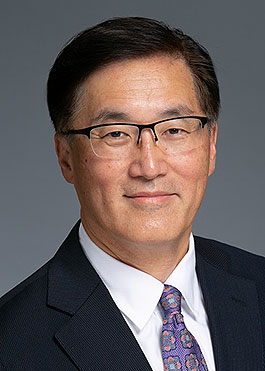
More than 44,000 cases of thyroid cancers will be diagnosed in the U.S. in 2024, according to the American Cancer Society. Thyroid cancer is a disease in which cancer cells form in the tissues of the thyroid gland. In the U.S., the disease is approximately three times more common in women than men, being the sixth most diagnosed cancer in women. The average age of diagnosis is 51, younger than most other adult cancers.
Thyroid cancer can occur without an obvious cause or risk factors. Some factors that may lead to an increased risk for thyroid cancer include:
- Exposure to radioactive iodine (RAI) in childhood
- Obesity
- Cigarette smoking
- Alcohol consumption
- Family history of thyroid cancer and inherited genetic syndromes
- High iodine intake
- Exposure to nitrate
- Increased thyroid-stimulating hormone levels
There is no routine screening test for thyroid cancer. The thyroid gland is a “bow-tie” shaped gland located in the lower middle of the neck just above your collarbone. Thyroid cancer may be found during a physical examination when a doctor checks for lumps or swelling in the neck. Sometimes the patient may notice a swelling in the lower neck or note changes in voice or difficulty swallowing and bring this to their doctor’s attention. In rare cases, the thyroid mass can become large enough to compress the trachea or windpipe. Thyroid masses can also be found during imaging for other conditions. If a thyroid mass or nodule is found, additional testing is oftentimes needed, including bloodwork to make sure your thyroid is functioning normally, imaging including ultrasound and CT scans and fine-needle aspiration (FNA) to analyze the cells in the mass. Molecular testing for mutations associated with thyroid cancer is available to improve the accuracy of these diagnostic procedures.
If surgery is indicated either for benign conditions (nodules or goiters) or thyroid cancers, options include a hemi-thyroidectomy (removal of half the gland) or a total thyroidectomy (removal of the entire thyroid gland). A neck dissection (removal of lymph nodes) may also be needed if the cancer has spread to lymph nodes in the middle of the neck (central neck dissection) or to the sides of the neck (lateral neck dissection).
For most thyroid cancers, surgical treatment can result in very high survival rates. In some advanced cases, radioactive iodine (RAI) is given after surgery to treat any remaining thyroid cancer. Head and neck surgeons will work closely with endocrinologists to coordinate post-surgical care including RAI and monitoring and replacing thyroid hormones. In some cases, chemotherapy and targeted therapy may be indicated in rare advanced thyroid cancers.
Head and neck surgical oncologists can offer individualized surgical options including surgeries designed to preserve thyroid and laryngeal (voice) function, complex surgeries for large goiters and cancers and removal of lymph nodes (neck dissection) both in the central and lateral neck.
It is best to approach thyroid cancer care with a multidisciplinary team of experts, including head and neck surgical oncologists, endocrinologists, medical oncologists, radiologists, radiation oncologists, pathologists, nurse navigators, genetic counselors and oncology rehabilitation specialists. Northside has a dedicated head and neck tumor conference that meets weekly to discuss the best-personalized treatment options for patients.
After treatment, it is important to have follow-up appointments to check for signs of recurrence. Engaging with survivorship resources can also provide invaluable support, including support groups, behavioral health specialists and counselors.
Learn about the Northside Hospital Cancer Institute Head and Neck Cancer Program.
References:
- American Cancer Society. “Key Statistics for Thyroid Cancer.” Accessed September 25, 2024. https://www.cancer.org/cancer/types/thyroid-cancer/about/key-statistics.html.
- Huang, Rui, Yiqing Zhang, and Hong Zhang. “Current Trends in the Epidemiology and Management of Thyroid Cancer.” Frontiers in Oncology 12 (2022): 9473679. https://www.ncbi.nlm.nih.gov/pmc/articles/PMC9473679/.

